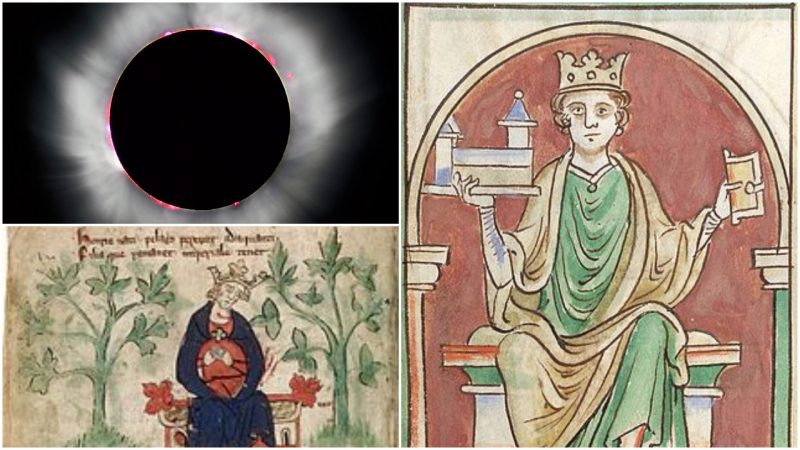There’s a story that when Sir Isaac Newton was working through his calculations on the progress of the planets and the reasons for an eclipse, he mounted a hand-written sign to gaze on: “The king will not die.”
His visual prompt may have been an acknowledgement of the mystical power of the solar eclipse over mankind for many centuries. While Newton’s genius gave us scientific breakthroughs, he also believed in magic, in particular ancient numerology.
Solar eclipses, the sudden darkening of the sky in the daylight hours, have thrown humans into a state of confusion and fear, not just in the ancient world but also the medieval one. It seemed as if an eclipse could only be a bad omen, and for societies who lived in thrall to a hereditary monarch, the very life of the king could be in danger. His or her death would surely plunge them into chaos.
As the Queen of England presently discourages rumors of a regency (or the British newspapers do it for her in discreetly sourced stories) and on social media, people pick over the marriages of her heir, Prince Charles, the days of monarchy filling such a crucial role may seem far away, and indeed they are. But a royal death could have once seemed to embody the dark power of the eclipse, and the death of the aged King Henry I in 1135 shortly after the sky went black created sorrow, fear, and an uneasiness that lingered until five centuries later when Newton responded to it.
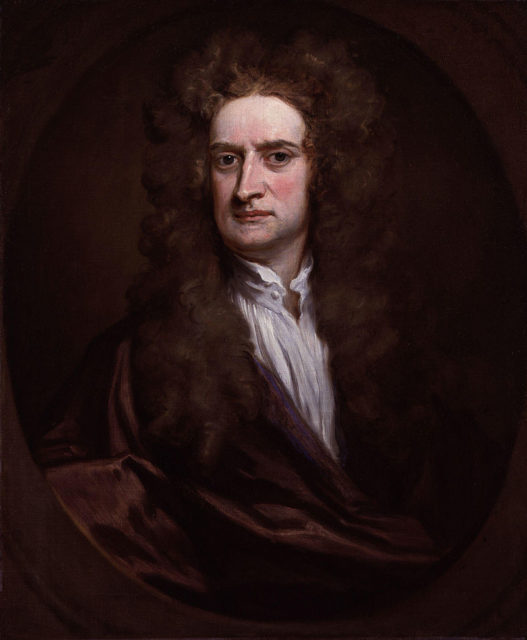
To look on the life of Henry I, the son of William the Conqueror, is certainly to face the stark difference between what in the 21st century we consider a “good” leader and what European society would have valued in that time. A Justin Trudeau, compassionate and caring, wouldn’t have flourished in the 12th century. No, England seems to have gotten the kind of ruler it craved in Henry I.
The youngest son of the Conqueror, born in 1068, did not appear to have an impressive future ahead of him when his father died. He received money but no land. His older brother, William Rufus, became William II. But he was widely despised. A historian described William Rufus as “a rambunctious, devil-may-care soldier, without natural dignity or social graces, with no cultivates tastes and little show of religious piety or morality.”
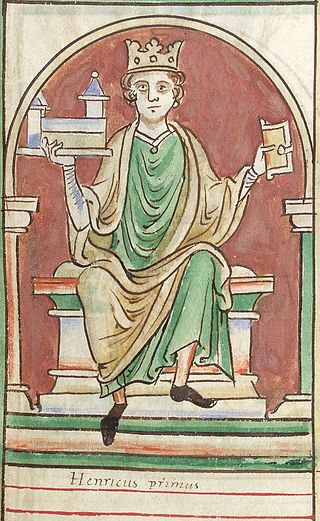
On August 2, 1100, the childless king went hunting in the New Forest with his younger brother, Henry, and a few friends. No one is sure exactly what happened, but William Rufus was struck in the lung by someone’s arrow and died. While he lay on the ground, alone, Henry galloped to Winchester to secure the treasury and declare himself king. A peasant eventually carried the body of William Rufus out of the forest. Henry I was crowned on August 5. But the role he played in the death of his brother has never been resolved.
Well educated and energetic, the new king strengthened the government of the country, but he waged wars, oppressed Wales, and was harsh and even brutal in his treatment of those who opposed him. He was challenged by the strength of the barons in the kingdom, putting an enormous amount of effort into manipulating them, but they became a serious problem later.
Henry married twice, his first wife a princess of Scotland, and had two legitimate children who lived to adulthood: a boy, William, and a girl, Mathilda. However, it must be said that the king had a stunning number of mistresses, acknowledging at least 15 illegitimate sons and daughters.
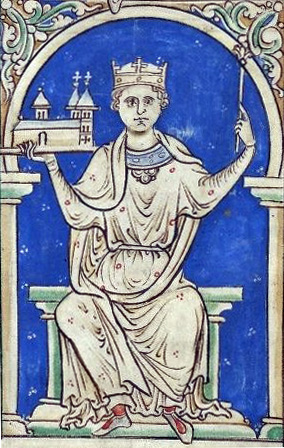
When his beloved heir, 17-year-old Prince William, died in a ship’s sinking, it is said that King Henry I never smiled again. It was more than a personal loss. As Winston Churchill wrote in The Birth of Britain, “It portended the breakdown of a system and prospect upon the consolidation of which the whole life’s work of Henry stood.”
The king eventually decided that rather than entrust the succession to one of his nephews (Stephen was especially popular) or an illegitimate son, the kingdom should be ruled by his daughter, Mathilda. Twice the king convened his barons and told them to swear oaths to Mathilda. They did so.
Mathilda was “fierce, proud, hard, cynical, living for politics above all other passions,” Winston Churchill wrote. It would seem the king chose well.
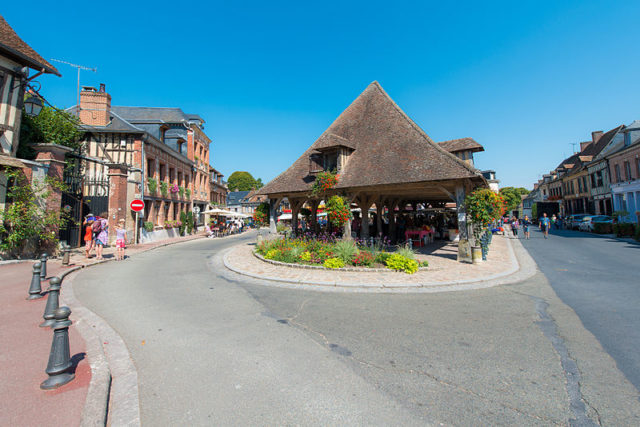
After “giving the Island thirty years of peace and order,” Henry I died but he did not so after a long decline. He was hunting in Lyons-la-Foret in Normandy when he suddenly fell ill and died a week later, at the age of 67. The date was December 1, 1135.
Earlier that year, some pinpointing the day as June 17, 1135, England had shuddered at the sight of a solar eclipse. It plunged the sun into darkness for 4 minutes and 13 seconds.
The death of the long-reigning king afterward seemed linked to the darkening of the sky, many muttered. Their worst fears became reality when the succession was disputed. The English barons did not all honor their oaths to Henry I and accept his daughter as queen. (There is little doubt that their disdain of a female as ruler played a part.) The king’s nephew, Stephen, took the throne, and England was plunged into a civil war, the country split between the followers of Mathilda and Stephen.
“This instability was exactly what Henry had struggled to prevent,” wrote Henry I’s distinguished biographer, C. Warren Hollister.
The deepening conflict did not affect only the royals and barons. The entire kingdom suffered as the system of law broke down. There was widespread plunder, violence, and robbery. A monk wrote in the Anglo-Saxon Chronicle: “Many thousands were killed with hunger. I neither can nor may tell all the horrors and the tortures that they did to the wretched of the land.”

To many, in retrospect, the 1135 solar eclipse was unquestionably an omen for the evils to come upon the death of Henry I. A 12th century chronicler connected the king’s sailing that summer from England to Normandy, where he would die before the year’s end, with the day of the eclipse. “A darkness appeared in the sky throughout England. In some places it was only a little dark but in others candles were needed… Some said this was an eclipse of the sun… King Henry left England for Normandy, never to return alive.”
In his chronicles, the famous historian William of Malmesbury also made that connection: “Henry set sail for Normandy… the elements manifested their sorrow at the great man’s departure. For the sun on that day in the sixth hour shrouded his glorious face, as the poets say, in hideous darkness, agitating the hearts of man by an eclipse…”
The civil war raged for years. And when King Stephen died, it was Mathilda’s son who succeeded, King Henry II, the man who would continue his grandfather’s tradition of harshness, concentration on lawful government, and many mistresses.
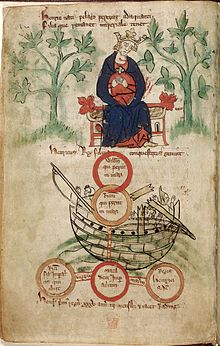
Another solar eclipse connected to medieval royalty was on March 16, 1485, the same day as the death of Anne Neville, queen of England. It was perceived as a bad omen for her husband, Richard III, who would indeed die at the Battle of Bosworth before the end of the year.
However, it was only a partial eclipse in England. In 1485 Germany they were in the path of the total eclipse–what we call now “the totality”–and reaction was interesting.
A historian wrote, “During meal-time, the Sun was totally eclipsed. This produced such horrid darkness on our horizon for the space of half an hour that stars appeared in the sky. Crazed birds fell from the sky and bleating flocks and fearful herds of oxen unexpectedly began to return from their pastures to their stables.“
